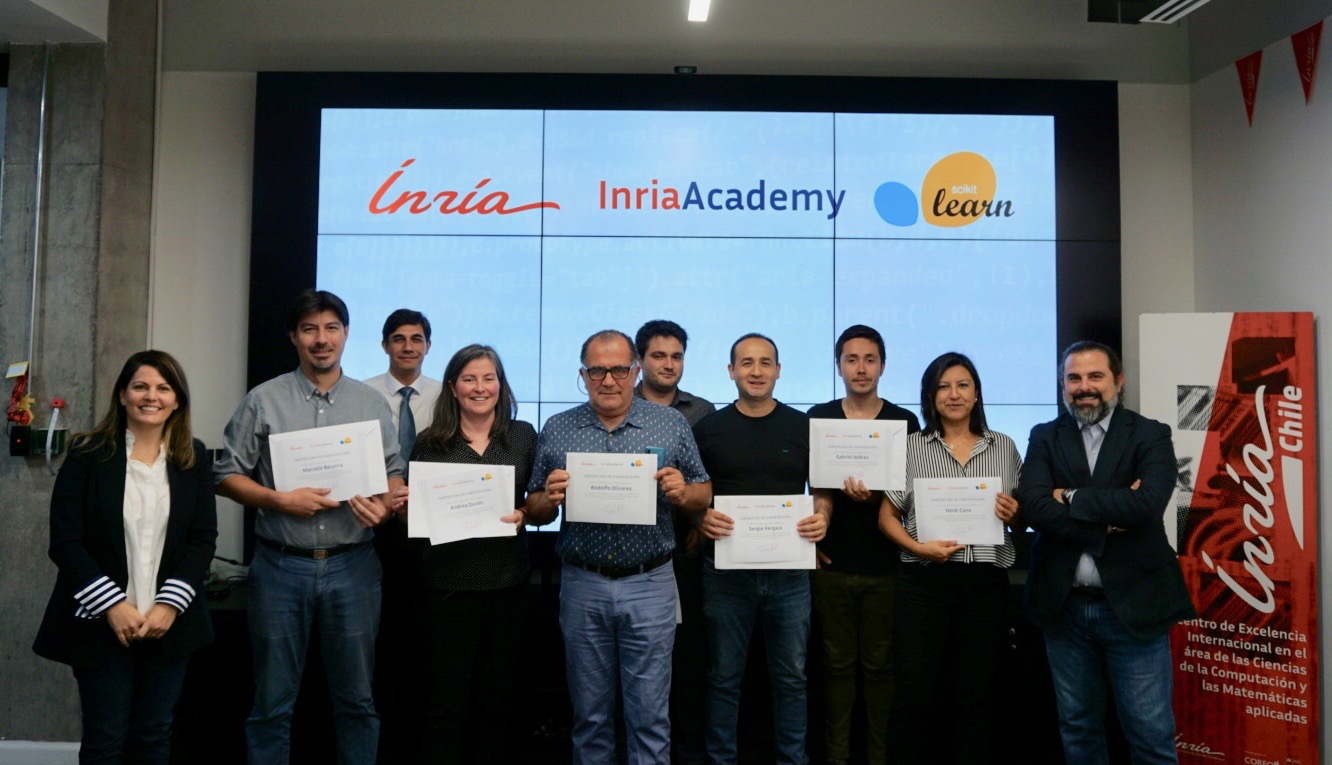According to National Director of SERNAGEOMIN, Alfonso Domeyko, this project consists of a set of IT tools used to process and interrelate all the mining information we generate and collect during our internal processes which allows us to improve productivity and focalize with greater effectiveness the preventive and supervisory action, through the control and analysis of the information improving the decision making of our inspectors.

It is a fact that digitalization and automation in industries such as mining positively impact their efficiency and productivity, and also decrease costs and risks. That is why Inria Chile - the French Institute for Research in Digital Sciences and Technologies - and Sernageomin (National Geology and Mining Service) kicked off their collaboration in mid-2019 by incorporating these tools into the Data Intelligence Office, which is being formed by the National Sub-Directorate of Mining of Chile.
This joint work is part of the digital transformation process that Sernageomin is carrying out and that will allow it to move from being a preventive Service to a predictive one, capable of anticipating the accident rate in the mining activity through advanced technologies, such as artificial intelligence, for data exploration. This joint development is part of SERNAGEOMIN's "Project Zero", with which they hope to eliminate mining accidents and provide people with a better quality of life.
Verbatim
I highlights that the collaborative work between Sernageomin and Inria during 2019 has been key to implement our Data Intelligence Office. It is important to highlight that we as a Service are focused on the goal of having zero accident rate in the mining industry.
I adds this project consists of a set of IT tools used to process and interrelate all the mining information that we generate and collect during our internal processes, which allows us to improve productivity and focalize preventive and supervisory action more effectively, through the control and analysis of information, improving the decision making of our inspectors"
Director of SERNAGEOMIN
In line with Domeyko, Nayat Sánchez-Pi, director of the Inria Research Center Chile,
Verbatim
Commented the economic impact of this "Project Zero" that we have developed in collaboration with the Sernageomin Data Intelligence Office is high. Its result represents cost savings and optimization of Sernageomin's personnel time. We will continue to accompany Sernageomin in the challenges of its digital transformation process.
Director of the Inria Research Center Chile
Inria Academy: Inria's training program in Chile
As part of this digitalization process, Inria Chile gave a two-day intensive course to the Sernageomin team on the main topics of artificial intelligence (AI) and its applications through concrete cases in its space located in the UC Anacleto Angelini Innovation Center.
This new model developed by Inria for connecting and training aimed at the public and private sector, adds value to R&D projects by including knowledge transfer.
Verbatim
Through Inria Academy we offer continuous training in digital technologies supported by open source software, as this provides a unique technological infrastructure to innovative companies and organizations. Through teaching and hands-on training based on practical cases, the adoption and assimilation of these disruptive technologies is accelerated.
Director of the Inria Research Center Chile
Said Nayat Sánchez-Pi, adding that the collaboration with Sernageomin has been a successful case of the application of this model.
Por su parte
Verbatim
I commented that "this type of training is fundamental for the work we are developing as a Service. Being up to date in knowledge of methods, concepts and technology related to data science allows us to understand how to face future projects that generate value to reach our long-term goal, zero fatal accidents
Deputy Director of Mining at Sernageomin
In the course "Artificial intelligence, from theory to practice" taught by Luis Martí, scientific director at Inria Chile, the participants had the opportunity to deepen their knowledge on topics such as machine learning, neural networks, deep learning and transfer learning, based on practical cases in Python using scikit-learn, the open source library developed by Inria for machine learning, which has more than one million users.
